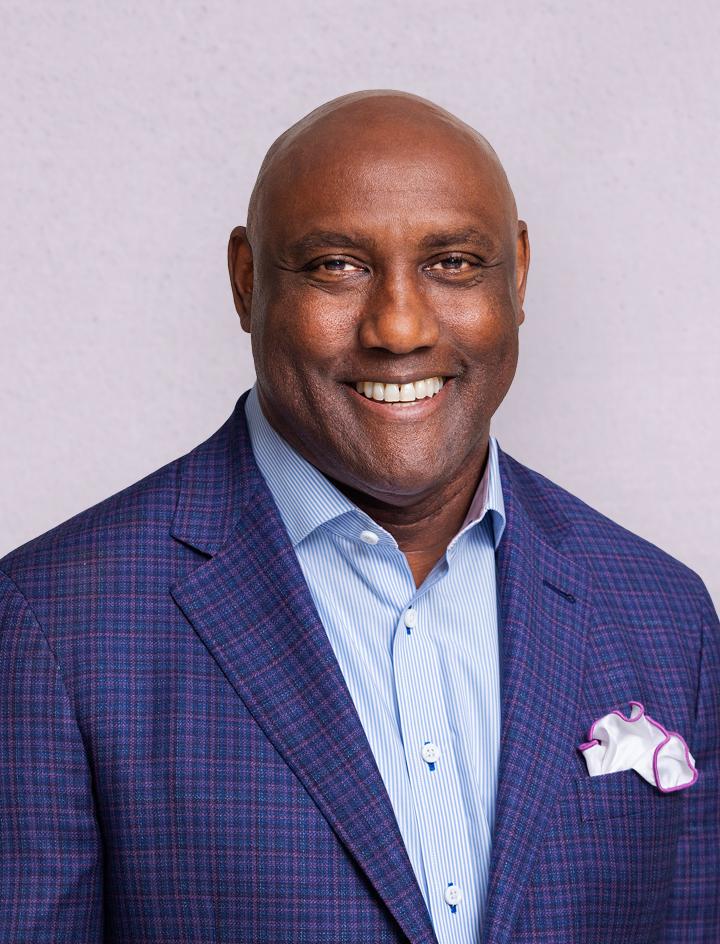Leadership During Crisis
A white paper with OneAmerica.
Author

CAP®
Subscribe to Newsletter
Related Posts
FinServe Network Convenes for 2025 Summit
View DetailsJuly 20, 2020
At the outset of the COVID-19 crisis, Scott Davison and I connected by phone as we do each Tuesday evening. The circumstances of that conversation were surely jarring. COVID-19 was spreading across America, but with no visibility on the virus, we didn’t know how wide-ranging the tragedy had become.

Scott and I have become close confidants during my 18 months leading The American College of Financial Services. As OneAmerica’s Chief Executive Officer, I lean on Scott’s perspective as the leader of a respected financial services company. As The College’s Trustee Board Chair, Scott also helps level set my thinking and serves as a valuable advisor as I make decisions that impact The College community.
We talked that evening about the fog of the present and ran through crisis planning scenarios for what was looking more and more like a global pandemic. In the weeks that followed, we checked in each Tuesday to share, strategize, and strengthen our resolve to arrive at organizational solutions.
In late April, with both of our communities staying home, we talked about ways we could share our thoughts with leaders across the financial services industry. We both know from experience that no two leaders process and navigate crises the same way, but perhaps our perspectives could make an impact as the industry navigates this great unknown.
Then, after deciding to publish a joint white paper on our leadership philosophies, racial unrest swept across the streets of our biggest cities and smallest towns. We were now seeing two crises attack our nation’s moral fabric. During times like these, leaders must fill the vacuum of panic and protest. Across all industries, we must stand up to protect our people and our organizations, while effecting sustainable, generational change where we can.
Our white paper, Leadership in Crisis, is an unfiltered look at how Scott and I view these crises, as well as the paths we must take to safely traverse today while sustaining our organizations for the future.
You can view some of our thoughts on several topics below. Thank you to Scott and his team at OneAmerica for their devotion and dedication to this project and to The College’s mission to benefit society.
On Leading With Values
“Values guide me and our organization every day, serving as a guiding light through every situation,” Davison said. “A clear understanding of our mission answers, ‘What are we doing here every day?’ It level sets expectations and frames what success looks like.”
“Each day I get up, I am providing a service to folks who are following me, and they have to know we are there to serve them, not the other way around. And that allows us to make mission-critical decisions around values,” Nichols said.
On Board Governance Helping Improve Leadership
“I have learned to say ‘no’ to a lot of Board opportunities,” said Nichols, who serves on the Board of City Year, a national service program focused on helping children and young adults become civic leaders in their communities. “I want to make an impact and share my wisdom, and that effectiveness leads to more opportunities, but executive leaders must be mindful of their time and narrow in on areas of synergy with their values.”
“I think a Board chair serves three roles: about five percent is managing the CEO, performance feedback and pay levels; ten percent is managing Board relationships and delivering certain messages to other Board members; and the final 85 percent is being a trusted advisor,” said Davison.
On Living a Life Rooted in Giving Back
“OneAmerica looks for two-for-ones that link causes, help more people, and align with our organizational priorities. It’s a win-win,” said Davison.
Nichols ties his idea of philanthropy to today’s racial injustice. As organizations chart a path forward, many should be wary to repeat the past. Charitable dollars are needed, but money is just one part of the equation. As Nichols points out, “A philanthropic initiative centered on dollars will eventually end when the next crisis hits. True philanthropy is marrying the funds with knowledge and know-how to create something that lasts.”
On Leading Organizations During Crises
“We accept what we cannot control and try to maximize what we can as long as it connects back to The College’s mission to benefit society,” said Nichols.
"If we step back, we see the higher purpose. It is time for us to be who we say we are. And that means making sure our service levels are outstanding,” Davison said.
On The One Piece of Advice They Want to Give
“Operate as a person first, not a CEO,” Nichols said. “I am a husband and father, so I self-reflect and think first how a person, not an executive, feels. I let all of those feelings – fear, confusion, misunderstanding, even hope – wash over me. Then I step back into the arena with my team and say, ‘Let us recognize these emotions, take them to heart, and make decisions.’ If an executive had been doing their job, absorbing the gravity of the moment should allow them to move past it long enough to execute.”
“Once I started having these consistent chats with our leaders and associates during COVID-19, it became apparent how necessary they were. We all started moving as one again. I believe clear, consistent communication will only allow organizations to move faster in the months and years ahead,” Davison said.
Related Posts
FinServe Network Convenes for 2025 Summit
View Details